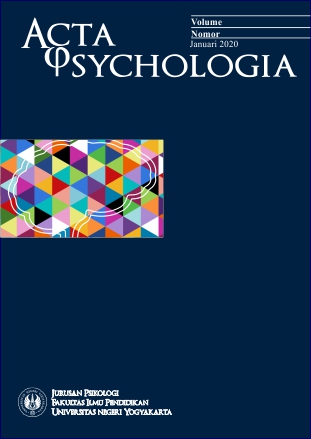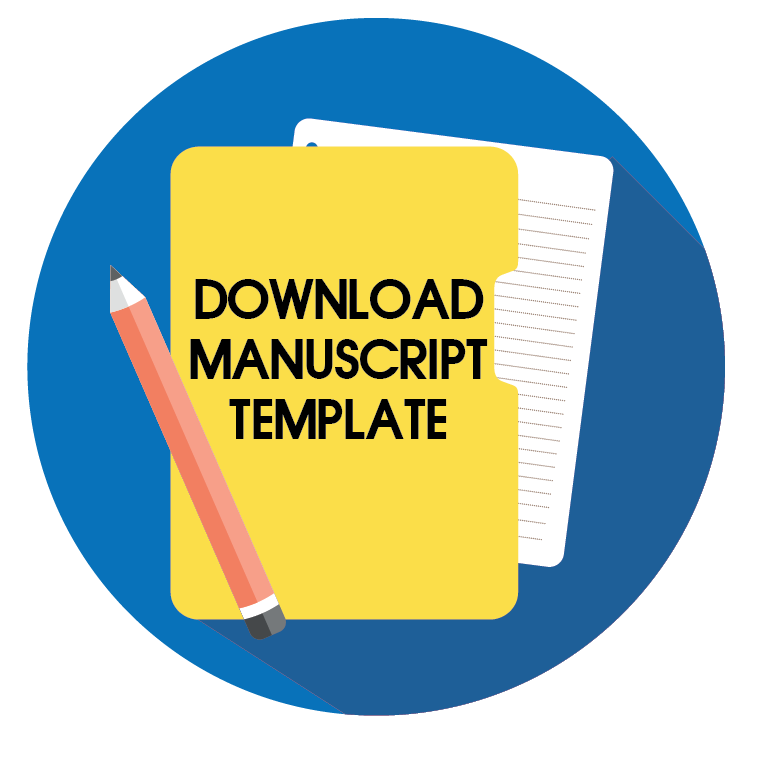Stress Akademik Sebagai Mediator Hubungan Antara Regulasi Emosi dan Problematic Internet Use pada Siswa SMP
DOI:
https://doi.org/10.21831/ap.v4i1.60610Keywords:
problematic internet use, regulasi emosi, stres akademikAbstract
Problematic internet use merupakan penggunaan internet secara berlebihan dan telah sampai pada tahap mengganggu aspek kehidupan individu seperti sosial, psikologis, pencapaian akademik maupun pekerjaan, yang disebabkan oleh ketidakmampuan individu dalam mengendalikan dorongan perasaaan atau perilaku untuk mengakses internet. Terdapat faktor personal dan lingkungan yang memengaruhi problematic internet use. Pada lingkup pendidikan, stres akademik dan regulasi emosi dapat menjadi faktor yang memengaruhi problematic internet use. Tujuan dari penelitian ini adalah memeriksa apakah stress akademik dapat memedasi peran regulasi emosi dan problematic internet use. Subjek penelitian ini adalah siswa SMP berusia 13-15 tahun. Penelitian ini menggunakan pendekatan kuantitatif dengan menggunakan tiga skala sebagai alat ukurnya, yaitu skala Perilaku Problematic internet use, Skala Stres Akademik, dan Skala Regulasi Emosi. Analisis yang digunakan adalah analisis jalur melalui PROCESS (Hayes, 2013). Hasil penelitian menunjukkan bahwa stres akademik berperan dalam memediasi hubungan antara regulasi emosi dan problematic internet use secara parsial. Hal ini mengimplikasikan bahwa stres akademik perlu dipertimbangkan untuk mengatasi perilaku problematic internet use pada siswa dan pengelolaan emosi diperlukan untuk menghadapi perilaku berinternet yang bermasalah.
References
Ah, Y. A., & Jeong, W. C. (2011). The mediating effect of internet addiction between academic stres and school maladjustment in adolescence. Korean Journal of Adolescents, 18, 27–50.
Amendola, Simone & Spensieri, Valentina & Guidetti, Vincenzo & Cerutti, Rita. (2019). The relationship between difficulties in emotion regulation and dysfunctional technology use among adolescents.
Blinka, L., Skarupova, K., Sveikova, A., Wolfling, K., Muller, K.W, & Dreller, M. (2015). Excessive internet use in European adolescent: What determines differences in severity? International Journal Public Health, 20, 249-256.
Busari, A. O (2012). Identifying Difference in Perception of Academic Stres and Reaction to Stresors Based on Gender among First Year University Students. International Journal of Humanities and Social Science, 2(14) 138- 146
Cao, H., Sun, Y., Wan, Y. et al. Problematic internet use in Chinese adolescents and its relation to psychosomatic symptoms and life satisfaction. BMC Public Health 11, 802 (2011) doi:10.1186/1471-2458-11-802
Caplan, S. E. (2007). Relations among loneliness, social anxiety, and problematic internet use. CyberPsychology & Behavior, 10, 234–242.
Ceyhan, A. A. (2011). University Student's Problematic internet use and communication skill according to the internet use purpose. Educational Sciences: Theory and Practice, 11(1), 69-77
Diomidous, M., Chardalias, K., Magita, A., Koutonias, P., Panagiotopoulou, P., & Mantas, J. (2016). Social and Psychological Effects of the Internet Use. Acta informatica medica : AIM : journal of the Society for Medical Informatics of Bosnia & Herzegovina : casopis Drustva za medicinsku informatiku BiH, 24(1), 66–68. doi:10.5455/aim.2016.24.66-68
Emelin, V., Alexander, T., & Elena, R. (2013). Excessive use of internet, mobile phones and computers: The role of technology-related changes in needs and psychological boundaries. Journal of Procedia Social and Behavioral Sciences, 86, 530-535.
Gentile, D. (2009). Pathological video game use among youth ages 8 to 18, A national study. Psychological Science, 20(5), 594-602
Griffiths, M. (1995). Technological Addiction. Clinical Psychology Forum
Gross, James J., & Jazaieri, H. (2014). Emotion, emotion regulation, and psychopathology: an affective science perspective. Clinical Psychological Science, 2(4), 387-401
Gross, James J., & Thompson, R.A. (2007). Emotion regulation: Conceptual foundations. Handbook of Emotion Regulation, 1-24.
Haythornthwaite, Caroline & Wellman, Barry. (2002). The Internet in everyday life: An introduction. The Internet in Everyday Life. 3-44
Hong, Y. (2002). Internet in a dilemma. Seoul: Good Information
Jelenchick, L.A., Eickhoff, J., Cristakis, D.A., Brown, R.L., Zhang, C., Benson, M., & Moreno, A.M. (2014). The problematic and risky internet use screening scale (PRIUSS) for adolescent and young adults scale development and refinement. Comput Human Behav.
doi: 10.1016/j.chb.2014.01.035.
Jun, Sangmin & Choi, Eunsil. (2015). Academic stres and Internet addiction from general strain theory framework.
Computers in Human Behavior. 49. 10.1016/j.chb.2015.03.001.
Karacic, S., & Oreskovic, S. (2017). Internet Addiction Through the Phase of Adolescence: A Questionnaire Study. JMIR mental health, 4(2), e11. doi:10.2196/mental.5537
Kormas, G., Critselis, E., Janikian, M. et al. Risk factors and psychosocialcharacteristics of potential problematic and problematic internet use among adolescents: A cross-sectional study. BMC Public Health 11, 595 (2011) doi:10.1186/1471-2458-11-595
Karaer, Y., & Akdemir, D. (2019). Parenting styles, perceived social support and emotion regulation in adolescents with internet addiction. Comprehensive Psychiatry, doi:http://dx.doi.org.ezproxy.ugm.ac.id/10.1016/j.comppsych.2019. 03.003
Larson RW, Moneta G., Richards MH., Wilson S. Continuity, stability, and change in daily emotional experience across adolescence. Child Dev. 2002;73(4):1151–1165
Lortie CL, Guitton MJ. Internet addiction assessment tools: dimensional structure and methodological status. Addiction 2013; 108: 1207-1216
McLaughlin, K. A., Garrad, M. C., & Somerville, L. H. (2015). What develops during emotional development? A component process approach to identifying sources of psychopathology risk in adolescence. Dialogues in clinical neuroscience, 17(4), 403–410.
Marlatt, G.A., Baer, J.S., Donovan, D.M., & Kivlahan, D.R. (1988). Addctive behaviors: etiology and treatment. Annual Review of Psychology, 39, 223-252.
Palfrey, J., & Gasser, U. (2008). Born digital. Understanding the first generation of digital natives. New York: Basic Book
Downloads
Published
How to Cite
Issue
Section
License
Acta Psychologia allows readers to read, download, copy, distribute, print, search, or link to its articles' full texts and allows readers to use them for any other lawful purpose. The journal allows the author(s) to hold the copyright without restrictions. Finally, the journal allows the author(s) to retain publishing rights without restrictions
- Authors are allowed to archive their submitted article in an open access repository
- Authors are allowed to archive the final published article in an open access repository with an acknowledgment of its initial publication in this journal

This work is licensed under a Creative Commons Attribution-ShareAlike 4.0 Generic License.










